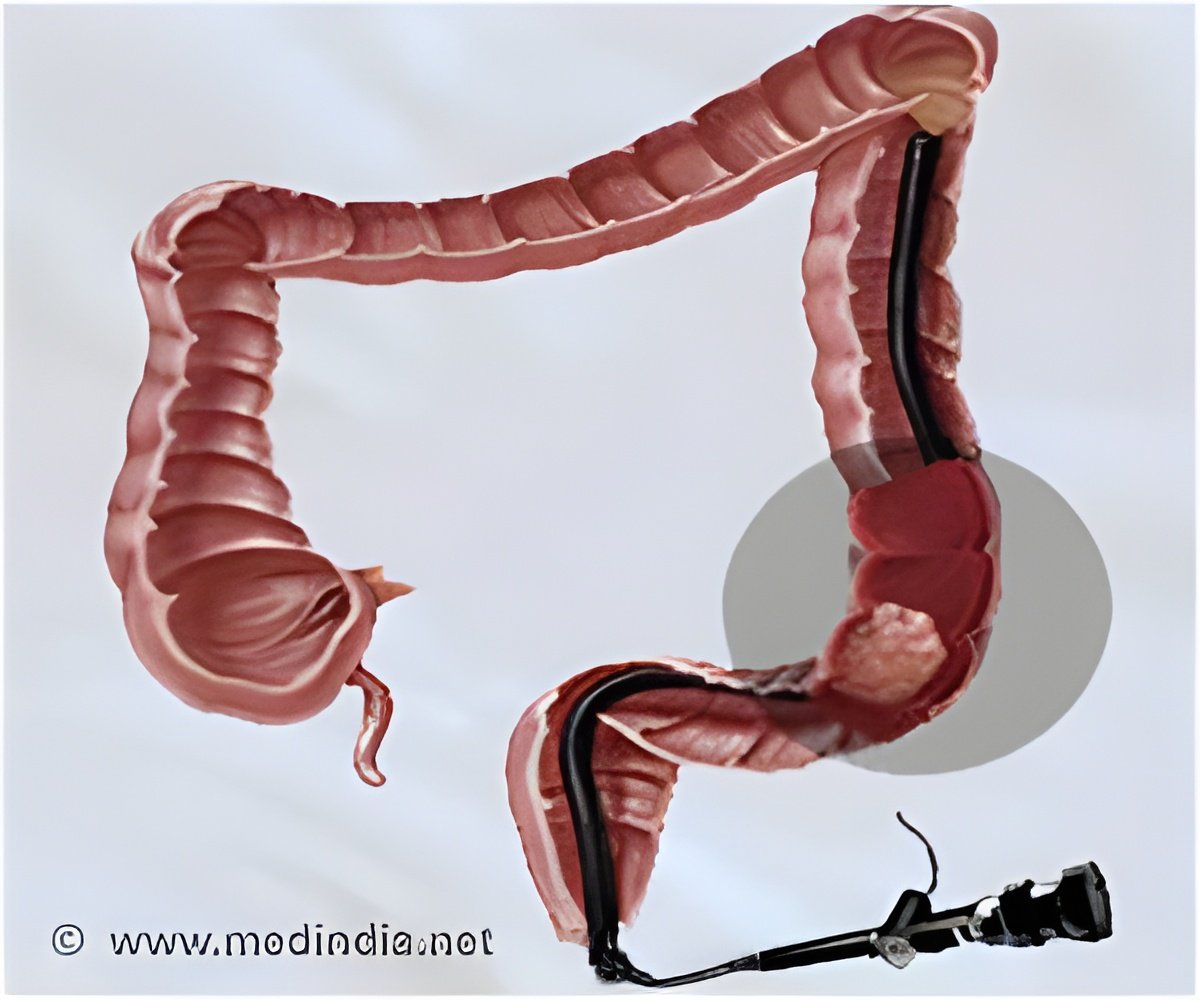New insights into how these hidden polyps escape colonoscopy can help detect colon cancer early, finds a new study. Colonoscopy is a standardized diagnostic tool used to detect Polyps (Abnormal growth on an inner membrane) that indicates colon cancer.

‘Cancer-causing polyps can sometimes be missed by colonoscopy, a common method of colon screening. As hidden polyps might be responsible for up to 30 to 40 percent of colon cancers that develop later.’





The most common method of screening is a colonoscopy, where doctors use a flexible scope to examine the colon. However, certain cancer-causing polyps can be easily missed during these examinations."Some polyps are embedded in the surface of the colon, and they're also flat and covered up," said David Jones, Ph.D., who holds the Jeanine Rainbolt Chair for Cancer Research at OMRF. "This makes them incredibly difficult for doctors to detect."
For a long time, said Jones, it was thought that colon cancers that developed in patients who had clean colonoscopies were coming about through some unknown mechanism that didn't involve polyps. "Now it is clear that these hidden polyps might be responsible for up to 30 to 40 percent of colon cancers that develop later," he said.
Working with a team of researchers, Jones analyzed the genetic composition of the hidden polyps. "Most cancers--and most polyps--need more than one mutation to form. However, in these polyps, only one gene, called BRAF, was mutated," he said.
Because of these telltale markers identifying the polyps, Jones said, it would be possible to create a diagnostic test to analyze fecal samples to look for these changes before a colonoscopy. "If changes are present, it would be a way for the doctors to know to look for a hiding polyp," said Jones.
Advertisement
Jones said understanding the downstream effects of BRAF mutation could allow for drug intervention to prevent this cascade of DNA changes from happening altogether. Ultimately, this might prevent the colon cancer from developing.
Advertisement
Source-Eurekalert















